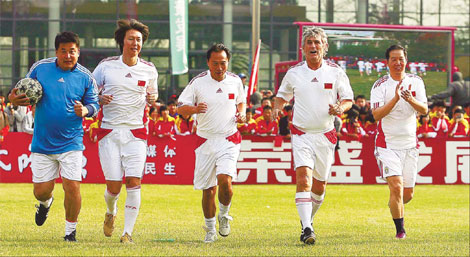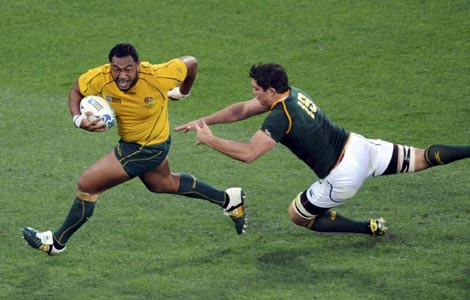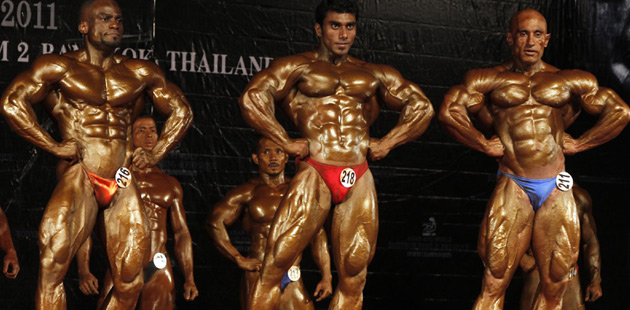The lost decade
Updated: 2011-10-11 08:00
By Tang Zhe (China Daily)
|
|||||||||||
|
Former China national team midfielder Li Tie (second from left), assistant coach Shen Xiangfu (middle), head coach Bora Milutinovic (second from right) and translator Yu Huixian (right), join a friendly match against retired players from Liaoning soccer club at a 10th anniversary celebration commemorating China's qualifying for the 2002 World Cup on Oct 7. Provided to China Daily |
Chinese soccer's seemingly inevitable ascent ground to an ugly halt after 2002 World Cup, Tang Zhe writes
Think of it this way. Ten years ago, a frog jumps out of a well he's lived in for decades. He finds himself on a highway. He's excited, but nervous. He hops around a little. A truck passes.
The roaring wind blows the frog back to the bottom of the well with such force, he never attempts the jump again.
Instead, he passes the years reflecting on the "sweet" memories of his one venture into the larger world.
That's how Yang Pu, who played in the 2002 World Cup, describes the past ten years of Chinese soccer.
Jin Zhiyang, an assistant on the team, just describes those years as a giant letdown.
"Many disappointing things happened in the past years, and it's a pity that we didn't take the opportunity (to develop Chinese soccer after the World Cup) - on the contrary, we completely lost the momentum to move forward." Jin said.
Chinese soccer's golden era came at the beginning of the millennium, when the national team qualified for its only World Cup in South Korea and Japan.
It all soon ended, as match-fixing scandals involving top officials in the Chinese Football Association (CFA) not only cost the authority its best window of opportunity, but also the credibility it needed to promote the sport.
The result has been a drastic decline in youth participation.
"Another ten years begins today," Jin said at a 10th-anniversary celebration of the team's World Cup qualification. "I'm glad to see fans coming back to the stadium after the crackdown on the corruption, and Chinese soccer is making improvement in a healthy and positive direction."
The 67-year-old led the Chinese Universiade team to the quarterfinals at the Shenzhen Universiade in August.
"If we can really work down to earth to develop soccer from youth, from schools, I'm sure we can make breakthroughs in ten years," he said.
Bora Milutinovic, coach of the World Cup team, stressed that development of young players should be the basis for the senior team's success.
"People always give more attention to the senior team - I know the national team is important, but youth development is more crucial for me," said the Serb. "I had certain good players to choose from at any time. A lot of players on our team were under 22 years old, and I knew I could find more if I needed.
"The Olympic team also contributed several outstanding young players for the senior team. It's not usual to have so many Under-17 team players on the starting roster of the national team, and I'm very happy to see some of them still playing on the current national squad after 11 years.
"But now people start to worry about the situation. You have to find out how many players you have aged 15 to 20, how many formal matches they play each year, and when is the last time each national team played a World Cup. Statistics tells the story."
Some former national team players who were in the World Cup lineup devoted themselves to youth development after they retired.
"I have played soccer for more than 20 years since I started at six," said Li Tie, who started his coaching career at Chinese Super League club Liaoning Hongyuan.
"My love for soccer has never changed, and I hope I will become a good coach in the future to bring up more outstanding players for our country."
The 34-year-old midfielder experienced several firsts for Chinese soccer. He was among the first group of teenagers to train overseas in Brazil in 1993, and joined the national team soon after his return.
Though China was routed at the World Cup, Li's performance in qualifying won him the chance to play at Premier League club Everton for six years.
"It is because of the World Cup that I could play in England," Li said. "Chinese soccer has hit bottom these last few years, and I will do my best to help it back to the right track."
Li also gave recommendations to the young players who were sent to European and Brazilian clubs by the CFA this year.
"Their living and training condition overseas are much better than ours, so there are reasons they do better than us," said Li, who will hold coaching courses in Brazil at the end of the year. "They should be dispersed to different clubs to get more time and opportunities to learn and experience the local atmosphere.
"The most important thing for them is to work hard. A lot of players on our team (at Brazil in the 1990s) were on the national team, and I hope some of the young players will create another history for Chinese soccer."
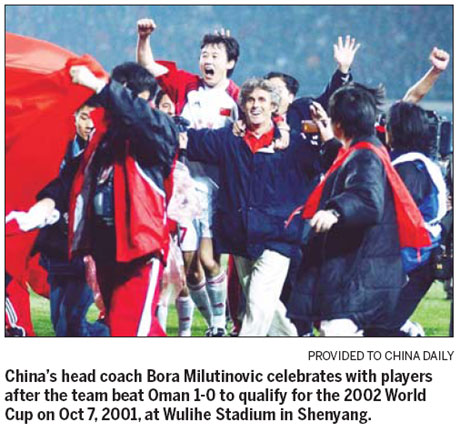
(China Daily 10/11/2011 page22)
Hot Topics
Libya conflict, Gaddafi, Oil spill, Palace Museum scandal, Inflation, Japan's new PM, Trapped miners, Mooncake tax, Weekly photos, Hurricane Irene
Editor's Picks

|

|
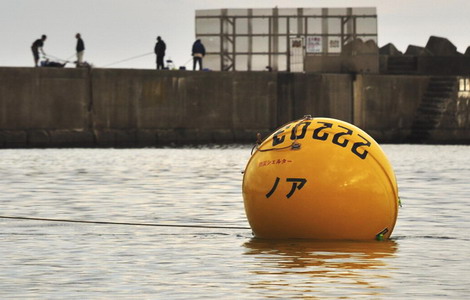
|

|
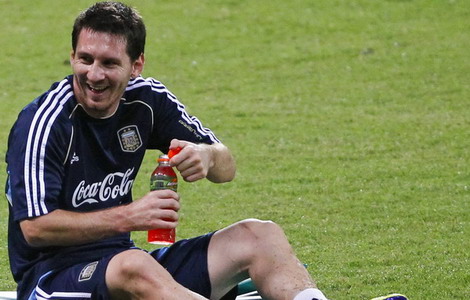
|
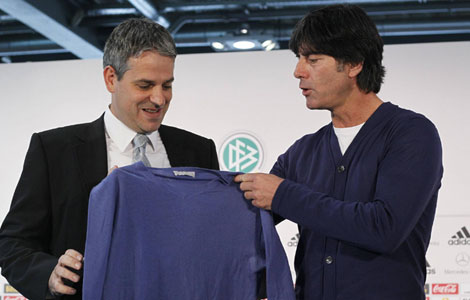
|
